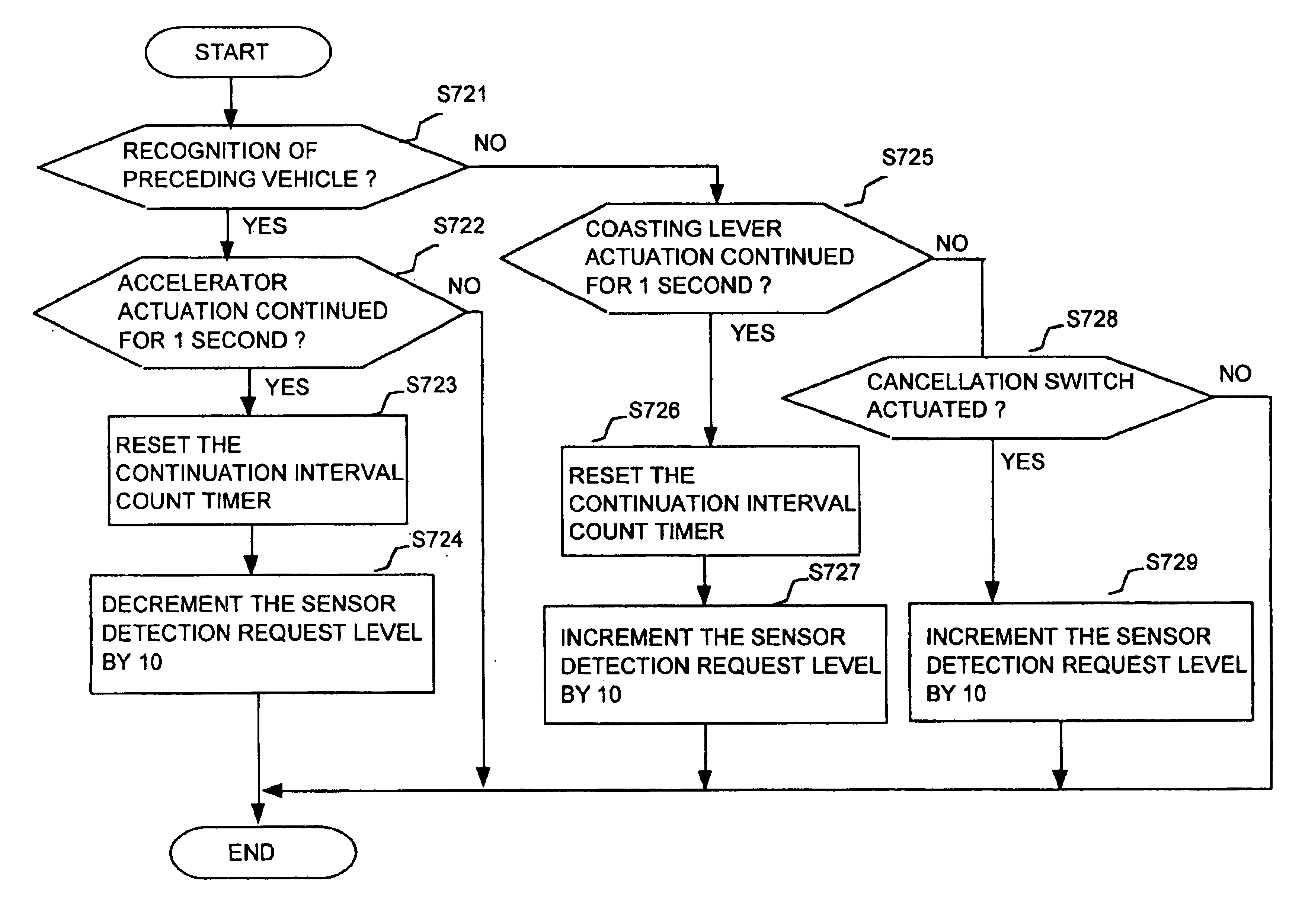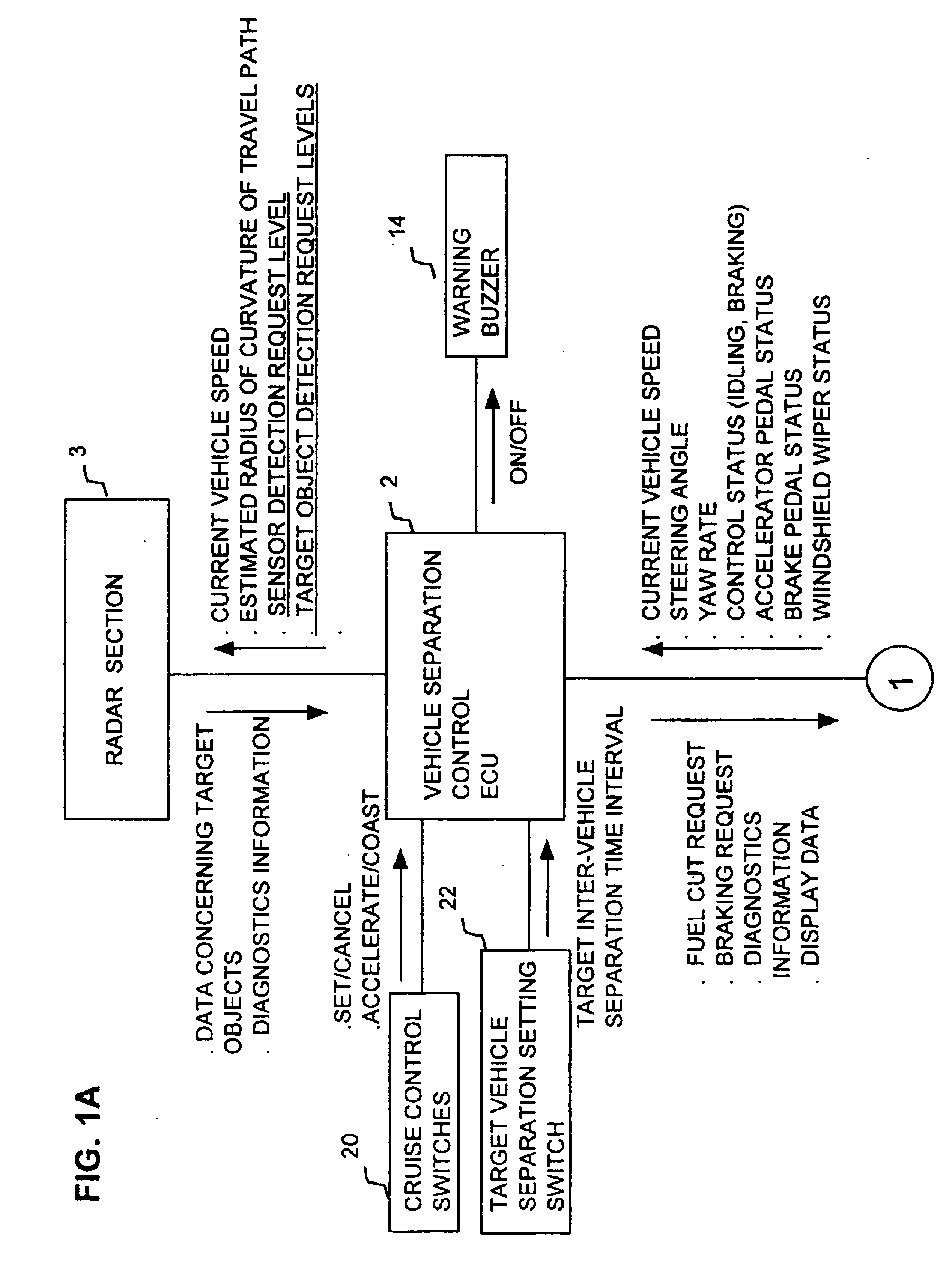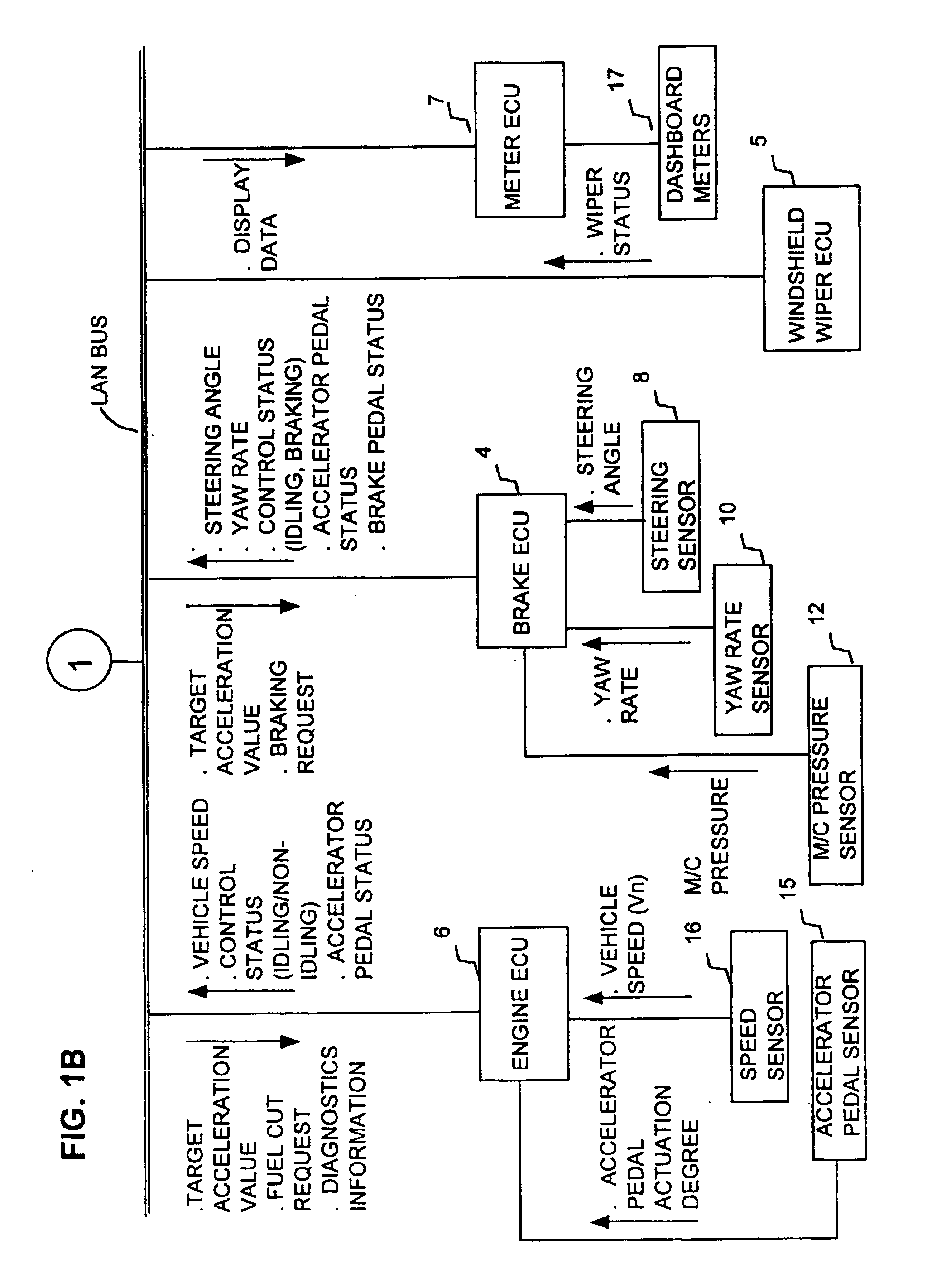Cruise control apparatus performing automatic adjustment of object recognition processing in response to driver actions relating to vehicle speed alteration
a technology of automatic adjustment and control apparatus, applied in the direction of using reradiation, pedestrian/occupant safety arrangement, instruments, etc., can solve the problems of detecting and erroneously recognizing objects such as guard rails or signboards, and errors in selecting objects as preceding vehicles. to achieve the effect of reducing the likelihood and increasing the likelihood
- Summary
- Abstract
- Description
- Claims
- Application Information
AI Technical Summary
Benefits of technology
Problems solved by technology
Method used
Image
Examples
Embodiment Construction
[0053]FIG. 1 is a general system block diagram of a cruise control system according to the present invention. (In the following it should be understood that, unless otherwise indicated, “the system” refers to the cruise control system which is being described). The system is based on a vehicle separation control electronic control unit 2 (with “electronic control unit” being abbreviated to ECU in the following), which is connected to a brake ECU 4, a windshield wiper ECU 5, a engine ECU 6, and a meter ECU 7 via a LAN (Local Area Network) data communication bus, and is further connected directly to cruise control switches 20, a target vehicle separation setting switch 22, a warning buzzer 14 and a vehicle separation control ECU 2. Data communication between the ECUs of this embodiment via the LAN communication bus is performed using the CAN (Controller Area Network) protocol (proposed by the Robert Bosch company, Germany) which is commonly used in automobile data communication networ...
PUM
 Login to View More
Login to View More Abstract
Description
Claims
Application Information
 Login to View More
Login to View More - R&D
- Intellectual Property
- Life Sciences
- Materials
- Tech Scout
- Unparalleled Data Quality
- Higher Quality Content
- 60% Fewer Hallucinations
Browse by: Latest US Patents, China's latest patents, Technical Efficacy Thesaurus, Application Domain, Technology Topic, Popular Technical Reports.
© 2025 PatSnap. All rights reserved.Legal|Privacy policy|Modern Slavery Act Transparency Statement|Sitemap|About US| Contact US: help@patsnap.com



